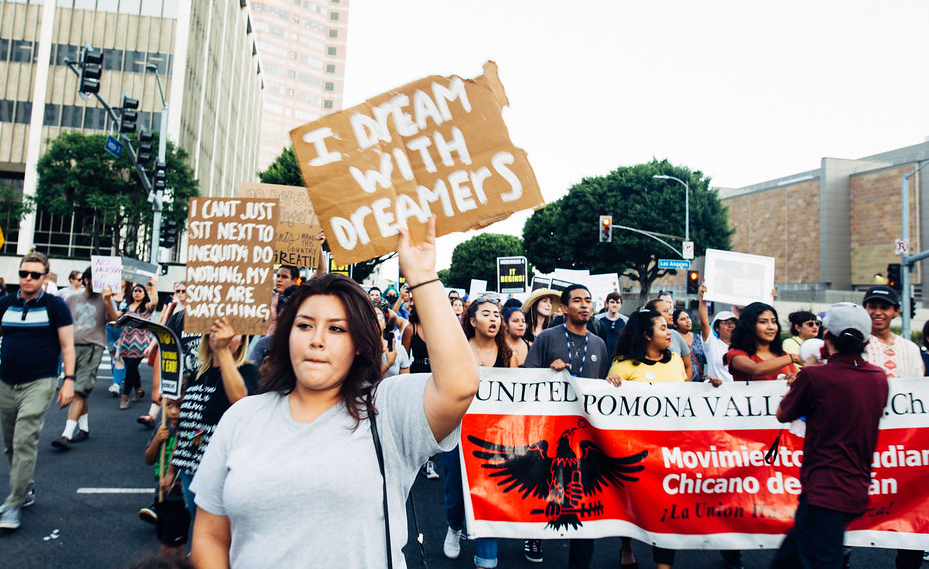A US FEDERAL judge has rejected the limitations imposed by the Trump administration on a programme protecting hundreds of thousands of immigrants – often called ‘Dreamers’ – who entered the United States illegally as children.
Judge Nicholas Garaufis in New York ruled last Saturday that President Donald Trump’s acting Homeland Security Secretary Chad Wolf was not lawfully serving in his role when, in July, he issued the new rules for the DACA programme (the Deferred Action for Childhood Arrivals) created in 2012 by his Democratic predecessor Barack Obama.
The new ruling is another victory for supporters of the programme after the US Supreme Court in June rejected Trump’s cancellation of it.
Wolf, who has yet to be confirmed in his role by the US Senate, placed new restrictions on the programme in response to the Supreme Court ruling.
Saturday’s ruling said his restrictions ‘effectively suspended’ DACA, while the Trump administration reviewed how to proceed.
According to Wolf’s rules, new applications would be rejected and renewals would be limited to one year instead of two.
They are now invalid because ‘the court holds that Mr Wolf was not lawfully serving as Acting Secretary of Homeland Security under the Homeland Security Act’ when he issued them, Garaufis said in his ruling.
Garaufis also said the correct order of succession had not been followed for the acting secretary’s appointment.
This not the first time the legality of Wolf’s appointment as acting secretary in 2019 has been drawn into question.
The US Supreme Court last Thursday dealt Trump another major setback on his hardline immigration policies.
Trump’s immigration policies have sparked protests both inside the US and abroad since he took office. He has pledged to deport millions of undocumented immigrants and keep Latin American immigrants from illegally entering the country by building a wall on the border with Mexico.
In 2020, the Obama administration sought to address the issue, with the DACA policy offering protection at renewable two-year periods, including authorisation to work, to ‘Dreamers’.
DACA, and the subsequent DAPA programme (Deferred Action for Parents of Americans and Lawful Permanent Residents) were executive actions Obama took to end the threat of deportation for undocumented migrants.
But after taking office, Trump cancelled DAPA and then went after the more established DACA, but immediately encountered a series of court battles over it.
- Divisions in the still undecided and highly-disputed US presidential election have spilled into the streets, with Trump supporters marching across the nation for the first time since the vote.
Counter-protests for President-elect Democrat Joe Biden, who has a lead in an election which appears far from being certified, were also held nationwide.
Post-election polls show that a whopping 70% of Republicans now believe the vote was not ‘free and fair’, a doubling from pre-election numbers.
Nearly two weeks after the vote, Trump has still not made a public address, but it appears that just one of hundreds of lawsuits could push the election into the hands of the Supreme Court, like in the year 2000.
The third disputed election in six tries has many conservatives, independents and leftists saying that this presidential vote needs the balance of judicial branch oversight in order to re-establish confidence in America’s electoral process. What’s certain is that Biden cannot legally be declared a victor by the media or public opinion.
The rallies come as emotionally and economically devastating stay-at-home advisories expand across many states, due to the long-expected autumn wave of coronavirus.
Last week Trump said there would be no national lockdown and backed off trying to finally get Congress to release a desperately needed second household stimulus.
The US is clearly on edge, but Biden supporters remain confident that the unprecedented use of mail-in ballots did not lead to fraud, and remain confident in the electoral process.
Trump supporters contend that they are not getting a balanced amount of air time in the mainstream media – and over such a critical democratic issue – but they also express faith in America’s electoral and judicial processes.
